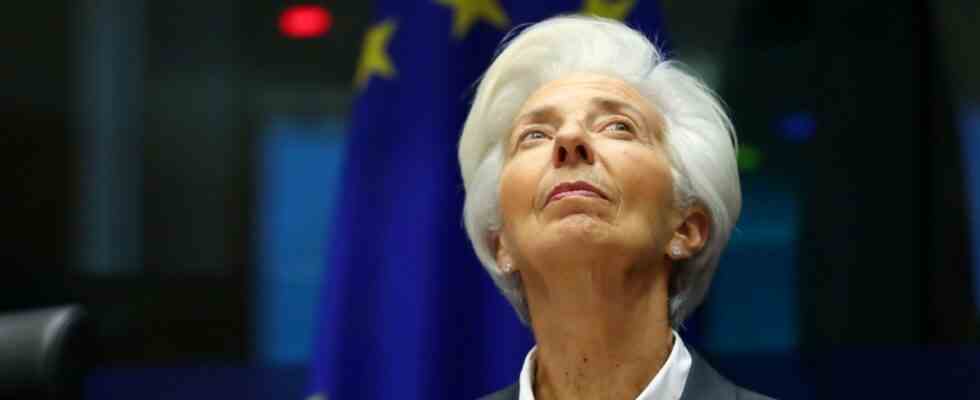In view of the high inflation rates, the European Central Bank is tightening its loose monetary policy somewhat faster than expected. The purchase of government bonds should end in the summer. Monthly bond purchases worth 30 billion euros were planned until the fall. The key interest rate remains at zero percent. A first rate hike can be expected “a while” after the end of the purchase program, said ECB President Christine Lagarde on Thursday after the ECB Council meeting in Frankfurt. At the same time, she said: “We are not talking about tightening monetary policy here, but about normalization.”
Lagarde stressed the economic risks resulting from the Ukraine war. “This war has had a huge impact on energy prices, trade and economic confidence,” said the Frenchwoman. In an emergency, the ECB will therefore expand its bond purchase program again. The Governing Council ran through various extreme scenarios for future developments. The newly drafted plan stipulates that the central bank will buy government bonds with a volume of 40 billion euros in April, 30 billion euros in May and 20 billion euros in June.
“This is a first step towards normalizing the very loose monetary policy. But there is still a long way to go before the first rate hike,” commented Jörg Kramer, chief economist at Commerzbank. The hesitant approach is risky in view of the massive increase in inflation rates.
It is not easy for the ECB to master the consequences of the escalating Ukraine war for inflation and market stability. On the one hand, if the fighting continues, there may be a sharp slump in growth. There are fears of “stagflation” – ie economic stagnation and high inflation – which could prompt the ECB to discuss a renewed easing of financing conditions. On the other hand, the energy bottleneck caused by the war sanctions is increasing the pressure on energy prices, which are already high. The ECB should actually tighten the reins of monetary policy if it wants to signal that it is taking the fight against inflation seriously.
Prices in the euro zone rose by 5.8 percent in February compared to the previous year. This is the highest value since the monetary union was founded more than 20 years ago. The increase in energy prices was almost 32 percent. To put this in context: the ECB is targeting an inflation rate of two percent, a goal that is a long way off, as the central bank’s current inflation forecasts show.
The experts at the ECB expect an average rate of inflation of 5.1 percent in the euro zone for this year – in December the economists had estimated 3.2 percent. Only in 2024, according to the central bank, will the value fall below two percent again. The inflation rates sometimes differ greatly in the individual member states. In Estonia and Lithuania the inflation rate is over twelve percent, in Germany it is 5.5 percent and in France 4.1 percent.
The sharp rise in prices over the past year was the result of economic restrictions in the course of the containment of the pandemic. The lockdown has halted production because key parts for end products, such as semiconductors, are missing and stores have been closed. In addition, there were delivery stops during the pandemic, for example because container ships were not allowed to leave the port or because there were no employees in the ports. So there was a shortage of supply. According to Lagarde, this has decreased a little.
As decided in December, the ECB will end its €1.85 trillion pandemic emergency program at the end of March – but only the net purchases, which means that as soon as government bonds from the pandemic emergency program are redeemed, the ECB will put the repaid money back into the bond -Market.

